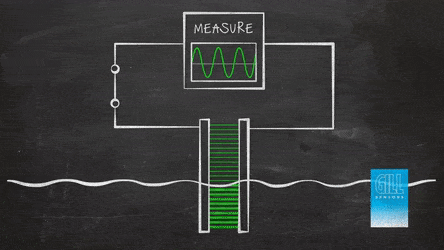What is a Capacitive Fuel Level Sensor, Unveiling the Power of Fleet Management

In the realm of fleet management, precise fuel monitoring is key to optimizing operations and maximizing efficiency. One critical component that has revolutionized this industry is the capacitive fuel level sensor. In this article, we delve into the inner workings of this technology, explaining how it enables fleet managers to accurately monitor fuel levels and make informed decisions.
Explaining the Principle:
Capacitive fuel level sensors operate on the principle of capacitive measurement, which involves measuring the capacitance of a fuel tank. This sophisticated technology utilizes a probe made of a high-quality dielectric material, acting as one plate of a capacitor. Through an electric field between the probe and the fuel surface, the sensor calculates the capacitance, which directly correlates with the fuel level.
Precise Measurements:
These sensors provide highly accurate measurements, unaffected by external factors such as road conditions, vibration, or fuel sloshing. By continuously monitoring capacitance variations, the electronic control unit converts this data into precise electrical signals, allowing fleet managers to obtain real-time fuel level information. This vital data empowers managers to make informed decisions regarding refueling, fuel economy, and overall efficiency.
Integration and Benefits in Fleet Management:
Capacitive fuel level sensors seamlessly integrate with fuel monitoring systems offered by industry leaders like KommNet. By combining accurate fuel level readings with powerful fleet management software, these sensors enable managers to detect fuel theft, identify fuel-related issues, and optimize fuel consumption. This integration empowers fleet managers to effectively streamline operations and reduce costs.
The use of capacitive fuel level sensors has significantly enhanced the way fleet managers monitor fuel levels. With high precision, resistance to external factors and seamless integration into GPS fuel monitoring systems, these sensors provide the backbone for efficient fleet management. By embracing this technology, businesses in the fleet management industry can optimize operations, improve fuel efficiency, and make data-driven decisions that ultimately boost their bottom line.
